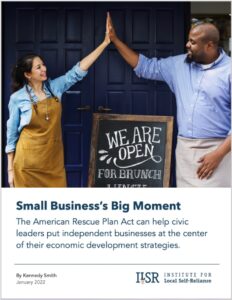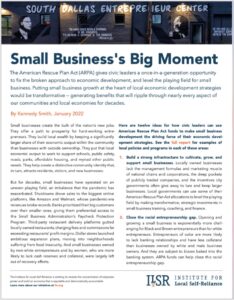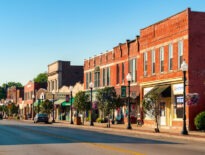Our report suggests a dozen ways that civic leaders can use the American Rescue Plan Act (ARPA) to strengthen local economies by supporting small business development.
| Small businesses build local wealth, with benefits for nearly every aspect of the community and region. They offer a path to prosperity for hard-working entrepreneurs. They keep a larger share of their economic output within the community than businesses with outside ownership, putting that output to work to support schools, public safety, roads, parks, affordable housing, and many other vital public needs. And young, small businesses create the bulk of the nation’s new jobs.
But one of the biggest challenges facing America’s communities is leveling the playing field for small businesses and intentionally moving away from the past decade’s Amazon-take-all trajectory. The $1.9 trillion ARPA provides America’s towns and cities with the money and encouragement to do so. Our report suggests twelve ways in which communities can use some of their ARPA allocations to strengthen and grow small businesses. It spotlights towns and cities that are already using ARPA money to cultivate small-scale manufacturing, provide affordable commercial space, close the racial entrepreneurship gap, support employee business ownership, improve small business procurement programs, and more. Read the full report about how the American Rescue Plan Act can make this small business’s big moment. |
|
Read Small Business’s Big Moment.
If you like this post, be sure to sign up for the monthly Hometown Advantage newsletter for our latest reporting and research.







